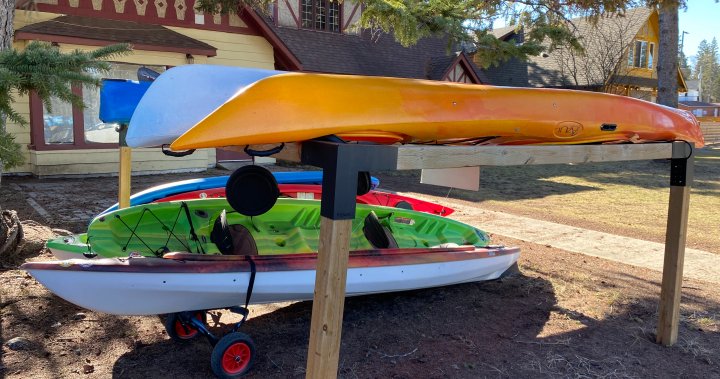The threat of zebra mussels in Clear Lake in Riding Mountain National Park has led to concerns about the potential of a boat ban in the area. The invasive species, which were found at a boat launch in November, have not been detected throughout the lake via water testing, but their presence cannot be ruled out. Many residents and businesses in the area are calling for increased prevention and monitoring measures to prevent the further spread of zebra mussels. While Parks Canada has engaged with various stakeholders in the community, including Indigenous groups, concerns remain about the potential economic and environmental impacts of a boat ban.
Karly McRae, a local business owner and Clear Lake user, believes that a complete watercraft ban may be a hasty reaction to the zebra mussel threat and is advocating for long-term solutions. She emphasizes the importance of public consultation to ensure that all stakeholders have a voice in the decision-making process. The Manitoba Natural Resources Minister has expressed concerns about the potential negative effects of a boat ban on tourism, the economy, and overall enjoyment of the national park. Despite these concerns, Parks Canada has not made a final decision and has pledged to communicate any decisions widely once they are made.
Critics of a potential boat ban, such as Ashley Smith from the Gambler First Nation, highlight the lack of direct communication with Parks Canada, particularly for Indigenous tourism operators. As the only Indigenous tourism operator in the area, Smith believes she should be consulted on decisions that could impact her business. While Parks Canada does have partnerships with seven First Nations in the park’s traditional territory, it is unclear how a boat ban would affect their fishing rights. The potential impact on eco-tourism businesses, such as Turtle Village, is also a concern for local operators.
Scientist Scott Higgins, who has researched zebra mussels, explains that the invasive species originated in the late 1980s in the Great Lakes and have since spread to Canadian waters. The mussels pose a significant threat to ecosystems as they have no natural predators and can harm native species. Higgins suggests that shocking the boat launch at Clear Lake could be a temporary solution to eradicate the mussels. However, he emphasizes the importance of taking proactive measures to prevent the establishment of zebra mussels in the long term. Limiting boats or restricting their use until the mussels are eradicated may be necessary to protect the ecosystem.
The potential impact of zebra mussels on water bodies in Canada, including Clear Lake, underscores the importance of implementing effective prevention and monitoring measures. The spread of invasive species can have far-reaching consequences for ecosystems, tourism, and local economies. Public consultation and communication with all stakeholders, including Indigenous groups, are essential in making decisions that balance environmental protection with economic interests. By working together to address the threat of zebra mussels, communities can safeguard their local water bodies and ensure the long-term sustainability of their natural resources.


